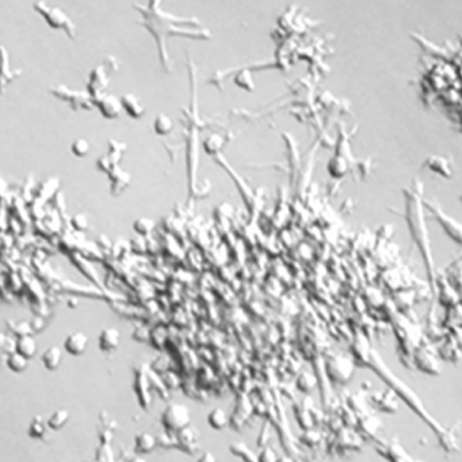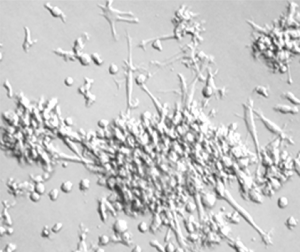Bio Science
- Home / Bio Science
- Human Primary Cells

Human dendritic immune cells (DC) play a key role in the immunological reactions throughout the body. DC are highly specialized antigen-presenting cells (APC) located in the skin, mucosa, and lymphoid tissues.
제품 상세정보
Human Dendritic Immune Cells
Human dendritic immune cells (DC) play a key role in the immunological reactions throughout the body. DC are highly specialized antigen-presenting cells (APC) located in the skin, mucosa, and lymphoid tissues. DCs play a key role in the induction phase of contact allergenicity and can be used in vitro to study contact sensitization and other immunological reactions of the body.
Autologous T Cells (TC-100-CRY & TC-100-RT) are available upon request.
Product Description
MatTek’s DCs are generated from CD34+ progenitor cells harvested from umbilical cord blood. The proprietary method used generates a large number of cells from each individual donor, allowing for multiple experiments in which the cell origin and functionality are constant. MatTek’s DCs express CD1a and HLA-DR and can be maintained in culture for at least 14 days without any significant changes in surface marker expression or functionality when cultured with DC-MM according to MatTek’s DC Culturing Protocol.
MatTek’s DCs were analyzed using transmission electron microscopy which show the presence of Birbeck granules, a key ultrastructural markers of DCs and LCs. Upon stimulation with LPS and PMA, a reproducible and significant induction is observed for IL-12, MIP-1α, MIP-3α and TNFα at the gene and protein expression levels. Furthermore, MatTek’s DCs are infectable with HIV and stimulate heterologous T Cells (TC) and autologous TCs following exposure to antigen.

Human Dendritic Cells, 10x
Specifications
